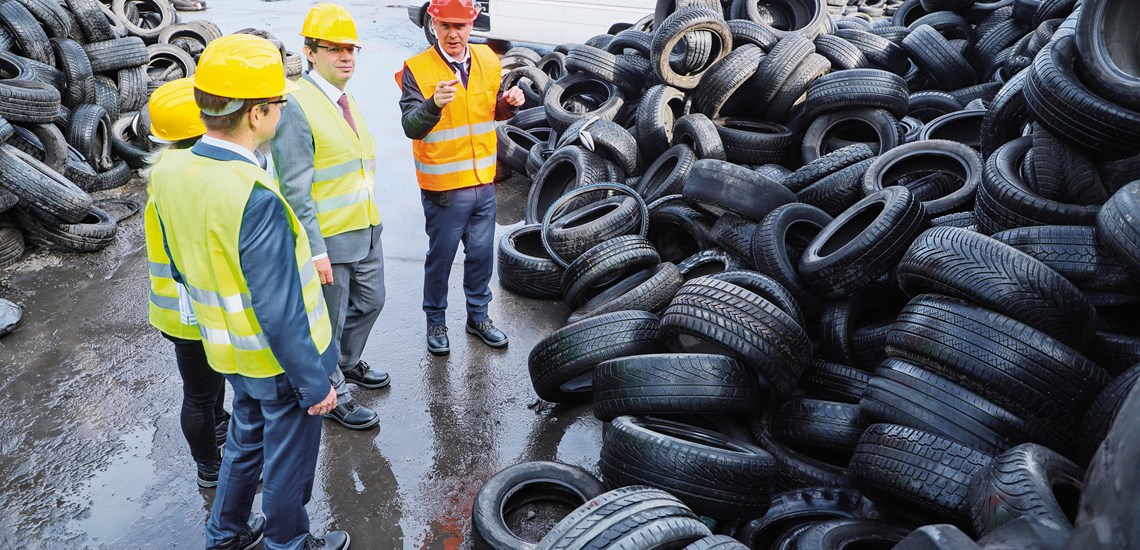Hungary’s New Energy has signed an agreement to supply pyrolysis oil to BASF
BASF Signs Agreement with New Energy
BASF has signed an agreement with New Energy, a Hungarian technology company which has developed a rubber waste pyrolysis process, to use New Energy’s pyrolysis oil as feedstock at a chemical production site. The agreement also considers further joint feasibility studies. This comes at the same time as BASF has invested heavily in German pyrolysis firm Pyrum.
The recent agreement will see New Energy provide BASF with up to 4,000 t/pa of pyrolysis oil derived from waste tyres.
The first batches of oil were used successfully in a pilot phase, at BASF’s integrated chemical production site in Ludwigshafen, Germany.
BASF and New Energy have additionally agreed to a feasibility study aimed at adapting New Energy’s proprietary pyrolysis technology to enable the conversion of other plastic waste streams.
This recent agreement is part of BASF’s ChemCycling project which started in 2018 and focuses on chemically reprocessing post-consumer waste plastic on an industrial scale.
Christian Lach, Project Leader of ChemCycling at BASF, said of the latest interest in Pyrum and New Energy; “So far, there has been no technology that allowed the recycling of pyrolysis oil from tyres into high value applications. By further broadening our raw material base to waste tyres, we can create a new circular value stream. Moreover, we can establish a second recycled feedstock in our ChemCycling project with which we can manufacture high-performance products for our customers’ demanding applications.”
Lach added that the recent agreements are in addition to a partnership with plastic waste recycling company Quantafuel, which will supply BASF with pyrolysis oil derived from mixed plastic waste from their commercial scale plant in Skive, Denmark.
“We spent almost a decade developing and optimising our technology and are now successfully operating an industrial-scale plant which turns waste tyres into secondary raw materials,” said Viktor Váradi, Co-owner and Executive Director of New Energy.
“Our objective is to achieve quantifiable environmental benefit. The reduced need for primary fossil resources clearly serves this objective as well as the reduced carbon footprint of the newly manufactured products.”




















